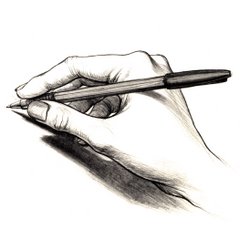For awhile now, I've been studying the art of comedy. I've read how-to books, articles, and studied movies to figure out the whole "formula" of the romantic comedy.
Today, I'm pooling all my resources together to post what I've learned. Granted, some people are tired of formulaic plots, but if you look at all the successful romantic comedy movies you can't help but think that it works.
Often I've asked how can I make my manuscript funny? Embarrass the characters? Twist the plot with irony? Give the character a sarcastic voice?
Finally, what I've have noticed from my search is a truth when this statement is compared to all successful comedies.
True comedy is the result of the character "over-reacting" to a normal situation. They devise fantastic plots and schemes to achieve their goals.
The hero and heroine never laugh at their situation. Their plight is real and their emotions of loss and pain are great. Romantic comedies help their protagonists "cowboy-up" to face their emotions and expose them to the world. Romantic comedies are about courageous people.
There is so much to learn about the characters in these comedies. The writer will need to focus more on an internal plot, engrossing their characters in spectacular emotions. However, today I want to focus mainly on the structure of the comedy.
1. Let the audience see the introduction of the hero and heroine.
2. Allow the reader to see the protagonist's goal and conflict before the end of Act II. Slowly feed the reader the protagonist's motivation little by little.
3. Introduce the rival character after you have allowed the reader to examine the hero's personality.
4. In the middle of the book, the main character must commit to a relationship with the protagonist. This moment will be a no-turning-back moment for our hero. His/her emotions will never be the same again.
5. Always allow the reader to have superior knowledge. The reader needs to know what the character doesn't. Do not surprise your reader. Allowing the reader to know more, creates tension for the reader.
6. The wonderful romance between protagonists must end by the 75% mark of the novel. Usually, some secret or some type of deceit is uncovered. Then the trust is broken and the relationship is dissolved.
7. Characters then have the last fourth of the novel to figure out that their life is meaningless without their romantic counterpart and will go to unknown ends to find their way back into love. Most importantly, the romantic comedy always has a happily-ever-after.
Just because your romantic comedy portrays love in a light-hearted manner with outrageous, over-reacting characters, it doesn't mean that you can't layer-in suspense, history, murder, science-fiction, and any other elements that will make your novel truly unique and yours.














No comments:
Post a Comment